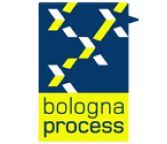Kazakhstan participation in Bologna Follow-Up Group (BFUG)
The Ministerial Conference is the highest decision-making body on all matters of the structure and development of the European Higher Education Area (EHEA). The event takes place once every 2-3 years, depending on the agreed schedule of the Ministerial conferences. The last full-time Ministerial Conference was held on May 24-25, 2018 in Paris (France). In 2020, because of the COVID-19 pandemic, the Ministers conference was held online on November 19, 2020.
The Bologna Follow-Up Group (BFUG) is the executive structure supporting the Bologna Process in-between the Ministerial Conferences.
From January 1, 2021, to June 30, 2024, the BFUG Secretariat is headed by Albania. The mandate includes providing administrative and operational support to the co-chairs and working structures of the BFUG, acting as an external and internal contact point for the Bologna process, and preparing the Conference of Ministers of Education of the EHEA and the Bologna Political Forum. BFUG is also responsible for the preparation of the Bologna Process Implementation Report.
Bologna Process Implementation Report – is the main reporting document of the Bologna process.
For the work of BFUG and its substructures (Bologna Secretariat, Board, Thematic Peer Groups, Working Group, Advisory Groups and Coordination Group), between the Ministerial conferences is drawn up the BFUG Proceedings.
Membership in BFUG
- full members – are 49 countries and the European Commission. To become a member of the EHEA, countries have to be a party to the European Cultural Convention and to declare their willingness to pursue and implement the objectives of the Bologna Process in their own systems of higher education.
- consultative members – 8 international organizations, non-voting members: Council of Europe, UNESCO, EUA, EURASHE, ESU, ENQA, Education International, BUSINESSEUROPE.
- partners - 4 organizations wishing to be associated with the Bologna process but not included in the list of consultative participants: EAIE, EUROCADRES, Eurodoc, Euroscience. They may, if desired, take part in BFUG events and WG and CG meetings. Further technical experts, such as Eurostat, Eurostudent or Eurydice may be associated to the BFUG and invited to events upon specific request
Working structures
Currently, working structures have been approved, which include 3 Thematic Peer Groups, 3 Working Groups, 1 Network of National Correspondents for Qualifications Frameworks and 1 Coordination Group.
Thematic Peer Groups:
- Thematic Peer Group 1 on Qualifications Framework;
- Thematic Peer Group 2 on the Lisbon Recognition Convention;
- Thematic Peer Group 3 on Quality Assurance.
Coordination Group:
- Coordination Group 1 on Global Policy Dialogue.
Working Groups:
- Working Group 1 on Monitoring.
- Working Group 2 on Social Dimension;
- Working Group 3 on Learning and Teaching.
Network of National Correspondents for Qualifications Frameworks
To participate in the working structures, each country sends a request to the BFUG Secretariat.
BFUG Secretariat
In the period from January 1, 2021 to June 30, 2024, the BFUG Secretariat is headed by Albania. The Secretariat consists of employees of the Ministry of Education of the country - the venue for the next ministerial meeting, carries out organizational and technical work, ensuring the activities of the Groups and the Board.
BFUG Board
The BFUG Board is an advisory committee for chairpersons and the Secretariat in preparing for BFUG meetings. The council also contacts working, advisory, and peer groups.
The current members of the Board are:
- BFUG co-chairs (former, current, future);
- Vice-Chair of BFUG;
- European Commission;
- 4 consultative members (Council of Europe, EUA, ESU, EURASHE).
The Board meets before the BFUG meeting in one of the co-chair countries.
BFUG Chairmanship
The BFUG Vice-Chair is the host country for the next EHEA Ministerial Conference (currently Italy). The co-chairs are the EU Presidency and the non-EU country.
The co-chair countries are responsible for promoting the goals set forth by the ministers responsible for higher education in the Bologna Declaration and the subsequent communique, and also jointly represent the interests of the EHEA at European and international meetings.




